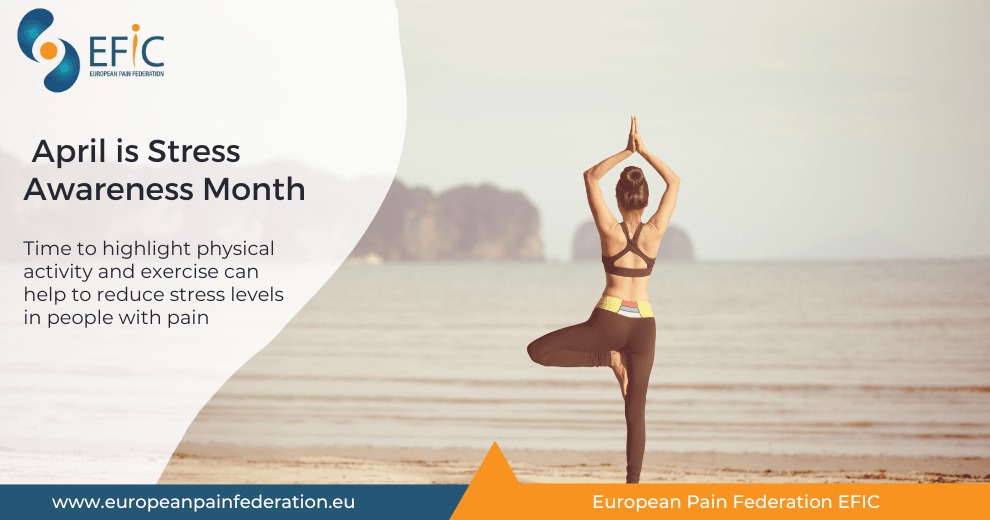Stress Awareness Month is observed every year in April. The goal of this month is to raise awareness about the causes and effects of stress on individuals, organizations, and society as a whole. It is a time to highlight the importance of stress management, self-care, and relaxation techniques in reducing stress levels and improving overall health and well-being.
This year theme is #LittleByLittle. The Stress Management Society aims to highlight the power of taking small steps each day towards self-care and stress reduction. They advocate for making manageable adjustments to daily routines, emphasizing that while individual actions may seem small, the cumulative effects of these habits can end up being profound.
Pain and stress are closely connected, as stress can both cause and exacerbate pain. Stress is the body’s response to physical or emotional pressure, and it can trigger a range of physical and psychological responses that can contribute to pain. When we experience stress, the body releases a hormone called cortisol. Cortisol can increase inflammation in the body, which can exacerbate pain and make it more difficult to manage. Additionally, stress can cause muscle tension, which can lead to stiffness and pain in the neck, shoulders, and back.
Furthermore, stress can also lead to the development of chronic pain conditions. Studies have found that individuals who experience high levels of stress are more likely to develop conditions such as fibromyalgia, chronic headaches, and back pain. Conversely, pain can also be a source of stress. Chronic pain can be physically and emotionally exhausting, and it can impact an individual’s quality of life and ability to perform daily activities. The stress caused by chronic pain can also lead to anxiety and depression, which can further exacerbate the pain.
It’s important to address both pain and stress in order to manage chronic pain effectively. Strategies such as mindfulness, relaxation techniques, and cognitive-behavioral therapy can help reduce stress and improve pain management. Additionally, regular exercise and physical activity can help reduce stress and promote pain relief. Overall, the connection between pain and stress highlights the importance of a holistic approach to pain management that addresses both physical and emotional factors. By managing stress and addressing the underlying causes of pain, individuals can improve their quality of life and reduce the impact of chronic pain.
Against this backdrop, our 2025 Pain in Europe XIV congress, themed “Comorbidity of chronic pain and mental health disorders: Breaking the cycle,” gains even greater relevance. #EFIC2025 aims to spark dialogue, collaboration, and action. Join us at the largest international scientific congress on pain as we work towards a brighter future for all. Find out more about #EFIC2025 here.
If you are an #EFICAcademy member, watch these related sessions now on our education platform:
- Psychological and social common assessment – https://academy.europeanpainfederation.eu/course/view.php?id=17
- ACT & Mindfulness – https://academy.europeanpainfederation.eu/course/view.php?id=74
- Complex and multidimensional nature of pain – https://academy.europeanpainfederation.eu/course/view.php?id=35
- Psychologically informed practice – https://academy.europeanpainfederation.eu/mod/lesson/view.php?id=586
- Behaviour change: an introduction and overview – https://academy.europeanpainfederation.eu/course/view.php?id=134
- Patient education: The effect of positive words on pain and anxiety – https://academy.europeanpainfederation.eu/mod/lesson/view.php?id=126
- The reduction of avoidance behaviour – https://academy.europeanpainfederation.eu/mod/lesson/view.php?id=1050
You can also read the following articles at The European Journal of Pain (EJP):
- Pain, mental health and healthcare utilization: Impact of the COVID-19 pandemic on youth with chronic pain, parents and siblings.
- Cognitive-affective changes mediate the mindfulness-based intervention effect on endometriosis-related pain and mental health: A path analysis approach
- Anxiety, history of childhood adversity, and experiencing chronic pain in adulthood: A systematic literature review and meta-analysis
- The selfBACK artificial intelligence-based smartphone app can improve low back pain outcome even in patients with high levels of depression or stress
To find out more, visit https://www.stress.org.uk/freeresourcesstressawareness/
